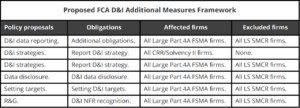
Whether it is spending money whilst on holiday, sending cash to friends or relatives in foreign countries, or making payments during business trips abroad – bank cards are no longer used for domestic purposes only.
The pace of change in the way we spend money in foreign countries has been exponential. Only a decade ago, consumers relied on transferring cash into local currencies or using travellers cheques whilst abroad, with bank cards typically only used for large purchases or emergencies. 10 years on, and as a result of the huge digital transformation witnessed across the banking sector, the scenario could not be more different.
Keeping up with this pace of change has been key for traditional banks to remain competitive. Whilst pre-paid currency cards arguably paved the way for lower foreign spending fees, it was the rise of the neobanks a few years later with their 0% foreign charges that helped transform the way we use our cards abroad today.
Some new research has looked at where we are now with card usage abroad, and which type of bank – neobank or traditional – is winning with the consumer. The research found there is a frustration amongst consumers who face foreign spending charges, presenting a clear area for financial institutions to review their consumer offering for foreign card usage.
Consumers unhappy with fees
The research sought to understand two key areas. The first was whether consumers understand their bank’s foreign spending charges, the second was how they felt about it. It is important of course to understand how payments abroad are made and also the frequency.
On average, consumers who make transactions outside of the UK, do so four times a year. The main reason for doing so is for leisure travel (57%), followed by transferring money to friends or family abroad (32%) and business travel (12%).
Card transactions are the most popular method of payment, with almost half (47%) of consumers using a bank card from either a traditional bank or a neobank. Cash remains in high usage, with 38% of people using it whilst abroad, followed by pre-paid cards (15%).
Whilst banks are required to clearly advertise any spending charges, the research found that just over a quarter (26%) of consumers understand their banking providers’ fees for spending abroad. The research also found that 32% of consumers do not think that their banks’ fees are fair and reasonable, and a further 38% admit to not even knowing what the fees are. A quarter (25%) of consumers want their bank to provide better transparency over transaction and exchange charges.
The rise of the neobanks
The zero charges on card purchases when spending abroad was a major selling point for the neobanks when they first launched, and it is clear from the research that this continues to be so today – particularly for millennial and gen Z age groups.
Over a quarter of 25-34-year-olds (28%) and a quarter of 16-24-year-olds (25%) rely on their neobank card to make payments whilst abroad. In fact, it is the more popular choice for both age groups compared to cards from traditional banks.
There are many reasons for this. Across all age groups who use a neobank, the main reason they chose to do so whilst abroad is for the lower fees (39%), followed by the ability to choose whether to spend in GBP or local currency (34%), which can help to keep transaction fees down. The ease of use of a digital banking app was another reason for using a neobank whilst in a foreign country for 29% of consumers.
In part two of this blog, I will take a look at the opportunities for traditional banks to do more for their customers and the significance of understanding the role of digital services.
- SEO Powered Content & PR Distribution. Get Amplified Today.
- PlatoAiStream. Web3 Data Intelligence. Knowledge Amplified. Access Here.
- Minting the Future w Adryenn Ashley. Access Here.
- Source: https://www.finextra.com/blogposting/24147/do-banks-need-to-provide-better-clarity-and-support-to-their-customers-whilst-abroad?utm_medium=rssfinextra&utm_source=finextrablogs
- :has
- :is
- :not
- :where
- $UP
- 10
- 15%
- 26%
- a
- ability
- About
- about IT
- across
- admit
- Advertise
- ago
- All
- also
- amongst
- and
- Another
- any
- app
- ARE
- AREA
- areas
- AS
- At
- average
- Bank
- bank cards
- Banking
- banking sector
- Banks
- BE
- been
- Better
- Blog
- both
- business
- by
- CAN
- card
- Cards
- Cash
- change
- charges
- choice
- Choose
- chose
- clarity
- clear
- clearly
- compared
- competitive
- consumer
- Consumers
- continues
- could
- countries
- country
- Course
- currencies
- Currency
- Customers
- decade
- different
- digital
- digital banking
- digital services
- Digital Transformation
- do
- doing
- Domestic
- down
- during
- ease
- ease of use
- either
- Even
- exchange
- exponential
- Face
- fair
- family
- Fees
- few
- financial
- Financial institutions
- Finextra
- First
- followed
- For
- foreign
- found
- four
- Frequency
- friends
- from
- further
- GBP
- Gen
- Gen Z
- Group’s
- Half
- help
- helped
- High
- Holiday
- How
- HTTPS
- huge
- i
- important
- in
- institutions
- into
- IT
- just
- Keep
- Key
- Key Areas
- Knowing
- large
- later
- launched
- local
- longer
- Look
- looked
- lower
- Lower Fees
- made
- Main
- major
- make
- Making
- many
- method
- Millennial
- money
- more
- most
- Most Popular
- Need
- neobank
- Neobanks
- New
- no
- now
- of
- offering
- on
- only
- opportunities
- or
- our
- outside
- over
- Pace
- part
- particularly
- payment
- payments
- People
- plato
- Plato Data Intelligence
- PlatoData
- Point
- Popular
- provide
- purchases
- purposes
- Quarter
- reason
- reasonable
- reasons
- relatives
- rely
- remain
- remains
- required
- research
- result
- review
- Richard
- Rise
- Role
- scenario
- Second
- sector
- Selling
- selling point
- sending
- Services
- significance
- So
- spend
- Spending
- support
- Take
- that
- The
- the UK
- their
- There.
- they
- think
- this
- times
- to
- today
- traditional
- transaction
- Transaction Fees
- Transactions
- Transferring
- Transform
- Transformation
- Transparency
- travel
- two
- type
- typically
- Uk
- understand
- understanding
- Usage
- use
- used
- using
- want
- was
- Way..
- we
- What
- when
- whether
- which
- Whilst
- WHO
- will
- winning
- with
- witnessed
- year
- years
- zephyrnet
- zero













